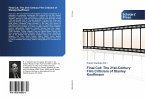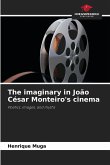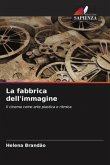Why do we refer to cinema as the "Seventh Art"? The name comes from Ricciotto Canudo, one of the pioneers of film theory and criticism. The author argues that Cinema's specificity lies in its ability to synthesise the Arts of Space or Plastic (Architecture and its complements, Painting and Sculpture) and the Arts of Time or Rhythm (Music, in turn complemented by Dance and Poetry). But Canudo's contribution is not limited to the "Manifesto of the Seven Arts": he seeks to define the properties of Cinema, giving it an aesthetic character, and recognises it as a language capable of renewing, transforming and spreading the other Arts, in a Total Art project. In this sense, it also seeks to observe the legacy of the Theory of the Seven Arts in the contemporary cinematographic panorama, reiterating the continued relevance of some of its vestiges that still actively contribute to the way cinema is thought and theorised today.
Bitte wählen Sie Ihr Anliegen aus.
Rechnungen
Retourenschein anfordern
Bestellstatus
Storno









